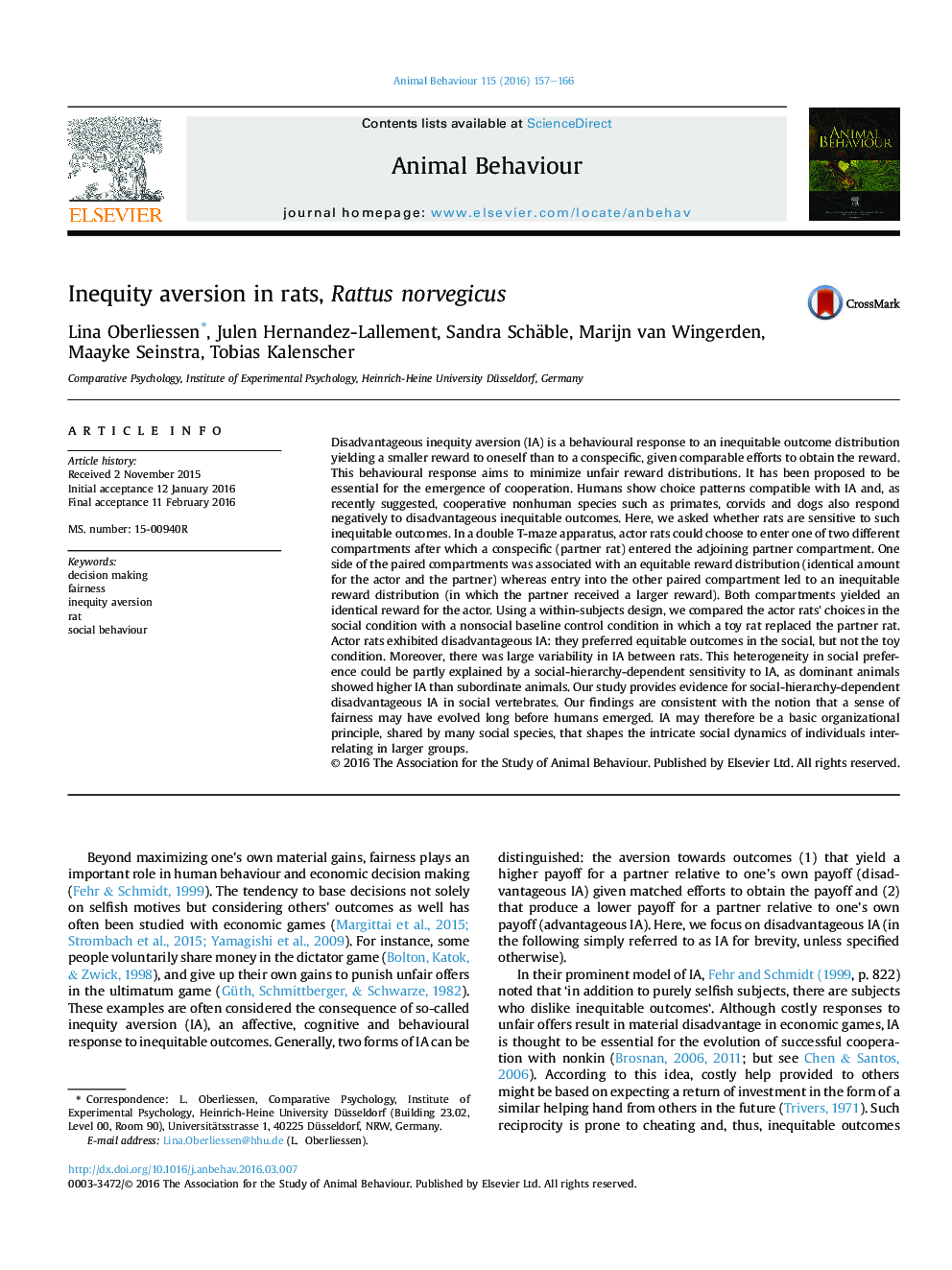| کد مقاله | کد نشریه | سال انتشار | مقاله انگلیسی | نسخه تمام متن |
|---|---|---|---|---|
| 8489108 | 1552213 | 2016 | 10 صفحه PDF | دانلود رایگان |
عنوان انگلیسی مقاله ISI
Inequity aversion in rats, Rattus norvegicus
دانلود مقاله + سفارش ترجمه
دانلود مقاله ISI انگلیسی
رایگان برای ایرانیان
کلمات کلیدی
موضوعات مرتبط
علوم زیستی و بیوفناوری
علوم کشاورزی و بیولوژیک
علوم دامی و جانورشناسی
پیش نمایش صفحه اول مقاله

چکیده انگلیسی
Disadvantageous inequity aversion (IA) is a behavioural response to an inequitable outcome distribution yielding a smaller reward to oneself than to a conspecific, given comparable efforts to obtain the reward. This behavioural response aims to minimize unfair reward distributions. It has been proposed to be essential for the emergence of cooperation. Humans show choice patterns compatible with IA and, as recently suggested, cooperative nonhuman species such as primates, corvids and dogs also respond negatively to disadvantageous inequitable outcomes. Here, we asked whether rats are sensitive to such inequitable outcomes. In a double T-maze apparatus, actor rats could choose to enter one of two different compartments after which a conspecific (partner rat) entered the adjoining partner compartment. One side of the paired compartments was associated with an equitable reward distribution (identical amount for the actor and the partner) whereas entry into the other paired compartment led to an inequitable reward distribution (in which the partner received a larger reward). Both compartments yielded an identical reward for the actor. Using a within-subjects design, we compared the actor rats' choices in the social condition with a nonsocial baseline control condition in which a toy rat replaced the partner rat. Actor rats exhibited disadvantageous IA: they preferred equitable outcomes in the social, but not the toy condition. Moreover, there was large variability in IA between rats. This heterogeneity in social preference could be partly explained by a social-hierarchy-dependent sensitivity to IA, as dominant animals showed higher IA than subordinate animals. Our study provides evidence for social-hierarchy-dependent disadvantageous IA in social vertebrates. Our findings are consistent with the notion that a sense of fairness may have evolved long before humans emerged. IA may therefore be a basic organizational principle, shared by many social species, that shapes the intricate social dynamics of individuals interrelating in larger groups.
ناشر
Database: Elsevier - ScienceDirect (ساینس دایرکت)
Journal: Animal Behaviour - Volume 115, May 2016, Pages 157-166
Journal: Animal Behaviour - Volume 115, May 2016, Pages 157-166
نویسندگان
Lina Oberliessen, Julen Hernandez-Lallement, Sandra Schäble, Marijn van Wingerden, Maayke Seinstra, Tobias Kalenscher,